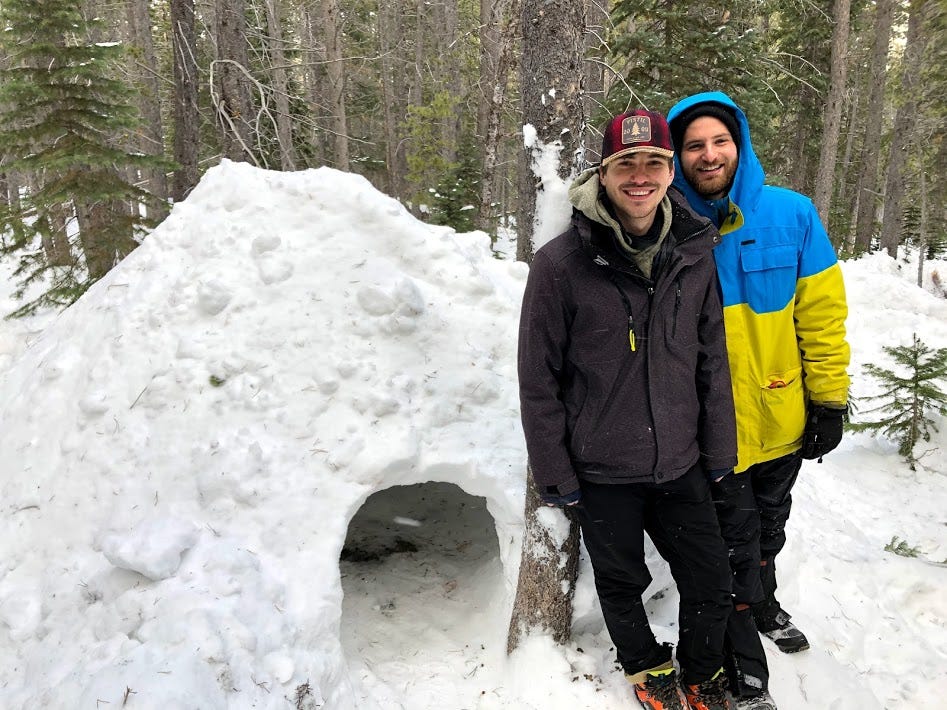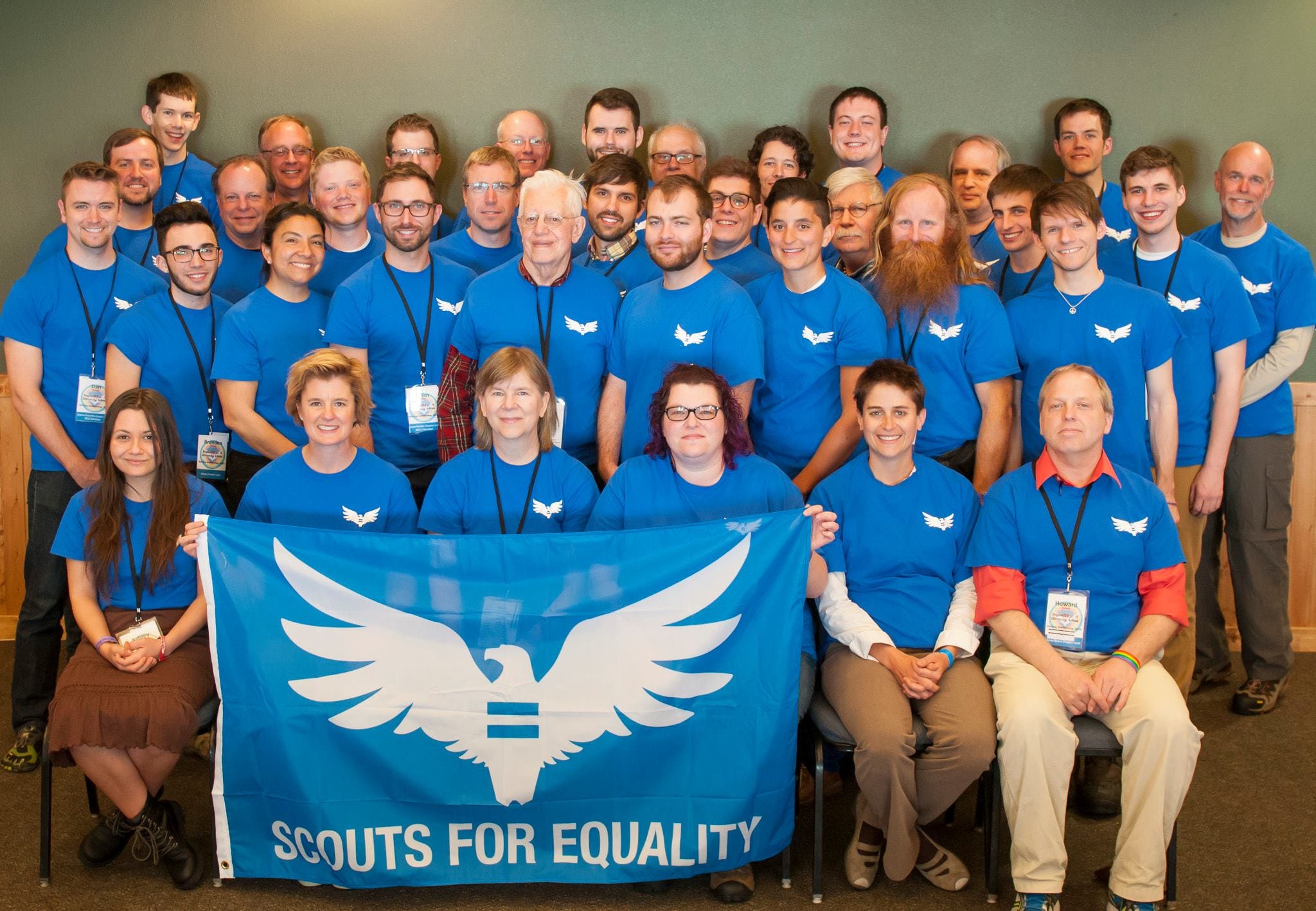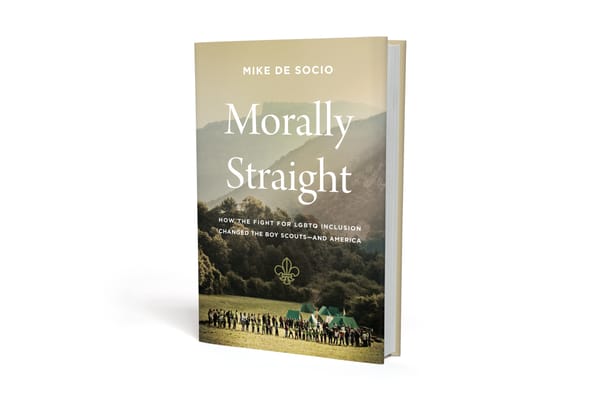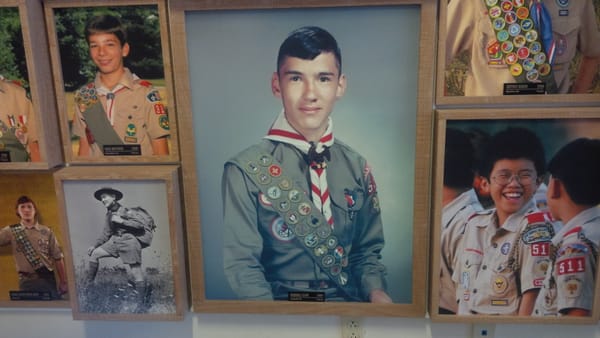Pride Profile: Alex Derr
"I wish I could tell myself to focus on the best that is within us all — and focus on the love I felt from my peers, rather than the fear I felt from my critics and detractors."
Alex Derr has a long history of advocacy for LGBTQ+ inclusion in the Boy Scouts of America. From his leadership in Scouts for Equality, to his passionate Facebook posts that endure to this day, Derr has long be calling for the BSA to do better (and did so recently in this newsletter).
But he wasn’t always that outspoken, and for a long time feared even being openly gay in Scouting. I asked the eagle scout and vigil honor member to reflect on his experience and activism. Our interview is below, edited for length and clarity.

Think back to your younger Scouting self, maybe as a first-time lodge officer. What would you tell that person?
When I was first elected as a lodge officer at the age of 16, no one in the Scouting program knew I was gay, and I was fiercely determined to keep it that way for as long as I could. Fear was the driving motivation behind many of my actions, and it kept me walled off from friends and mentors for many years. I kept a firm line between my life at school, where I was out, and my life in Scouting, where I was not. I was constantly afraid the two worlds would mix, and I would be bullied, threatened or removed.
I wish I could go back to that time and encourage my younger self to try trusting my peers and mentors in both my troop and lodge. The fear was real — but so was the trust I developed between my co-officers and advisors. They would eventually find out about me as I came out to them one-by-one, and not a single one of them, neither youth nor adult, ever reacted with anything but love and support. I wish I had known that much sooner.
I wish I could tell myself to focus on the best that is within us all — and focus on the love I felt from my peers, rather than the fear I felt from my critics and detractors. Because in the long run, most of the criticism has melted away from my memories — but the friendships and bonds I created have only become stronger.
And of course, I would tell myself to keep up the fight for equality in the program, as it would end up being successful much more quickly than I could have ever imagined. What I thought at the time would be a decade-long battle for policy change ended up taking less than four years, which continues to astound me today.
What future do you want to see for LGBTQ+ people in Scouting?
I can't wait for the day when LGBTQ+ scouts and leaders are not merely tolerated in the program, but they are celebrated, supported and lifted up just like any other group within Scouting. Many scouts and scouters already live out the admonition in terms of how they treat LGBTQ+ scouts, with love and compassion, but there is a great deal of room for improvement, to live out the admonition throughout all levels of the Scouting movement.
We've come a long way since I was removed from my troop in 2015. That is undeniable. However, we still have a great deal more work to do. In my experience, the culture at the section, region, and national level has become very supportive towards LGBTQ+ scouts, but things have lagged considerably at the local level, and in areas still hostile toward our community. A scout's experience still varies largely depending on who their leader is, who their sponsor organization is, and where they live.
Someday soon I hope that the National Committee will do the hard work of spreading that culture of support — the spirit of our admonition — throughout all levels and areas of our movement, through training, skill-building and policy change. It won't be easy, but I'm confident it can and will be done. It's just a question of how long it takes us to make it happen.

Why is Scouting worth it?
Simply put: there is no other organization that does what Scouting does. Scouts have a unique place in American history and society as a symbol of what it means to be an ethical and responsible young leader. I remember as a kid finding it so refreshing to join a group where discussions of ethics around the campfire were actually possible, and allowing me to meet like-minded people from all over my area, state and country. I've made more friends through Scouting than any other part of my life — and that's a sentiment that I hear over and over again. Scouting's reach and resources make it a unique youth organization. No other individual group can come close to their overall impact.
Furthermore, at a time when young people are spending more time on computers and tablets and less time outdoors, Scouting is keeping a vital link alive for young people to explore the outdoors, while at the same time developing leadership skills and strengthening their moral fiber.
Time after time, I've gotten asked the question, "Why don't you go start a Scouting organization for LGBTQ+ people?"
Simply put, it wouldn't be Scouting, because Scouting is what it is because it is open to all, and because it brings together so many people, cultures, and perspectives to do good. It cannot be replaced, because it is one of a kind.
What else should I know about your Scouting story?
I credit Scouting with changing the trajectory of my life forever. When I joined my troop I was going through a tough time in my life, with lots of bullying and little self-confidence. The program changed the way I thought about myself and what I could do, and that's why I've been so focused on making it even better for kids like me. I know what it can do for people when there is love and support embedded in what they do.


